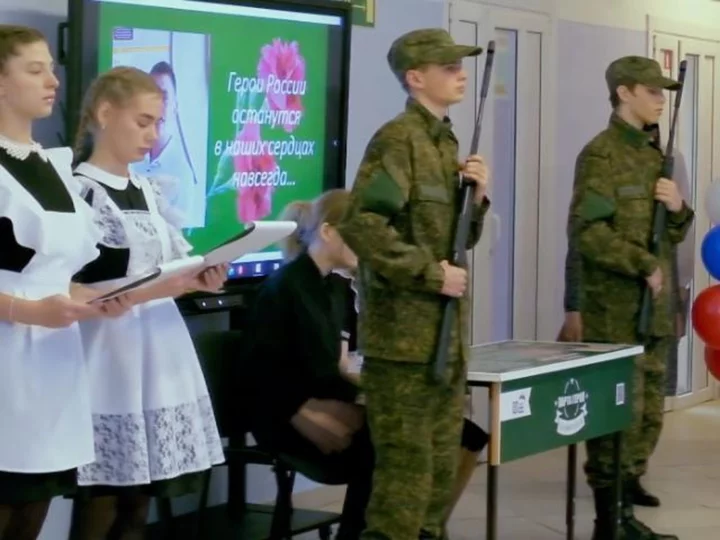
This soldier died in Ukraine. Now his face is on a desk to inspire Russian schoolchildren
Grasping a bouquet of roses, black headscarf tied tight and wearing a polka-dot dress, a middle-aged woman arrives in a nondescript, pink-walled hall in the Russian region of Chuvashia.
1970-01-01 08:00
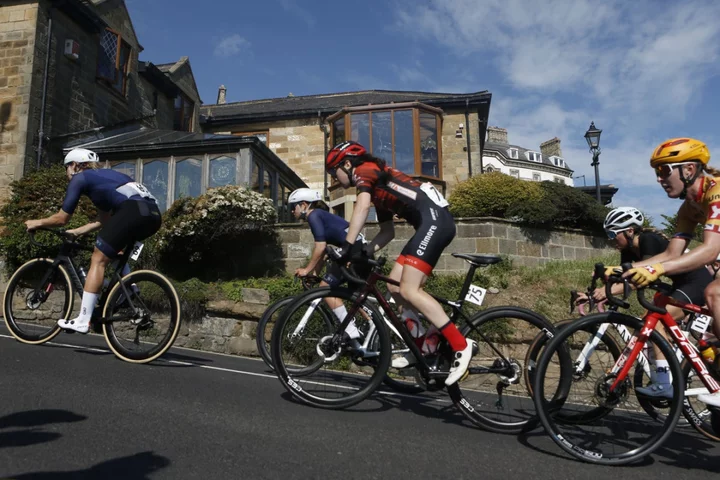
These are the women making waves in the cycling world
With the Tour de France Femmes kicking off on July 23 for a week of thrills, cycling and entertainment, it will also be highlighting the women making this sport what it is. In its second official year as the Tour de France Femmes, races of this calibre have happened in the past, but never on such a global stage. So, what is happening in the women’s cycling scene, how did we get here, and why does it matter?The women changing the game Women are working hard to bring the sport to people of all backgrounds. “The Amy D Foundation, Black Girls Do Bike, Get Women Cycling and Little Bella’s are all fantastic organisations, helping and encouraging women – and young girls – to get into cycling in spite of age, race and background,” explains triathlon cyclist Kate Dunbar. This year’s Tour de France Femmes will have a determined line-up of women championing the sport. Who should we look out for? “Annemiek van Vleuten was a fantastic contender in 2022, and I expect her to do well again this year. It’s her final year ahead of retirement, so she will want to do well,” says Dunbar. “The course this year is suited to van Vleuten’s skill set and she will have a stronger Movistar team to support this target, including Sarah Gigante and Liane Lippert.”A growing sport There has, in recent years, been a marked increase in the interest of this sport. “There is, without a doubt, a rising interest in women’s cycling,” says Amanda Braverman, global director of brand marketing at cycling tech brand, Hammerhead. “With more events geared towards women’s cycling and growing viewership in the Tour de France Femmes year on year, we’re seeing measurable gains in both interest and access to the sport.” “But we can’t ignore the fact that The Women’s Tour in the UK was cancelled, even though sponsors saw a huge return on investment in 2022, and the Women’s World Tour race Vårgårda, West Sweden was cancelled permanently after 25 years,” says Dunbar. “Even though we are seeing bigger efforts from organisations and the industry as a whole, as with most women’s sports, the Tour De France women’s tournament is still vastly overshadowed by the men’s – we still need more support and encouragement to boost women’s cycling,” she stresses. Cycling as a tool for liberation There is an important link between cycling and women’s liberation, that goes back a long way, beyond racing, to basic transportation. “It gave women social mobility and allowed them to travel faster and further than ever before. They could cycle further for work opportunities, and it also advanced fashion, as women needed cycling-suitable clothing. It allowed women to take control of their fitness and health in an easy way,” says Dunbar. Women’s cycling also subverted norms. “Cycling challenged femininity in the late 19th century, and bicycles were used heavily to support the English suffragettes movement. The bicycle became – and to this day remains – a symbol and a tool of female empowerment, independence, freedom and opportunity,” says Braverman. Trailblazers Some hugely inspiring women came before today’s Tour de France Femmes stars. “Some of the first women to get involved in cycling were true trailblazers, cycling as early as the late 1800s,” says Braverman. “Montreal-based Louise Armaindo raced on the high wheel, also known as the penny-farthing, which was much more dangerous than the modern bicycle. Armaindo set the North American long-distance record in 1872, and was praised as “the champion female bicycle rider of the world”. She also credits ‘The Big Five’ – Lizzie Glaw, Helen Baldwin, May Allen, Tillie Anderson, and Dottie Farnsworth – an influential group of female cyclists who raced in the 1890s, fitting their racing careers into busy lives that often included their families and other jobs. Today, there’s no denying defending champion van Vleuten leads the modern ‘big five’, but who else will be in the mix? Lorena Wiebes is likely to have another great first stage, Elisa Longo Borghini will give it her best shot, alongside the phenomenal Demi Vollering, and maybe Juliette Labous will make even more progress this year. Whatever happens, we are surely in for an exciting week of women’s sport.
1970-01-01 08:00

Nordea Raises Guidance as Second-Quarter Profit Beats
Nordea Bank Abp, the biggest bank in the Nordic region, raised its full-year profitability guidance as the tailwind
1970-01-01 08:00

Canadian wildfires put nearly 60 million US residents under air quality alerts
Canadian wildfire smoke continues to plague the United States, triggering air quality alerts for 11 states across the northern Plains, Midwest, and Great Lakes region Sunday.
1970-01-01 08:00
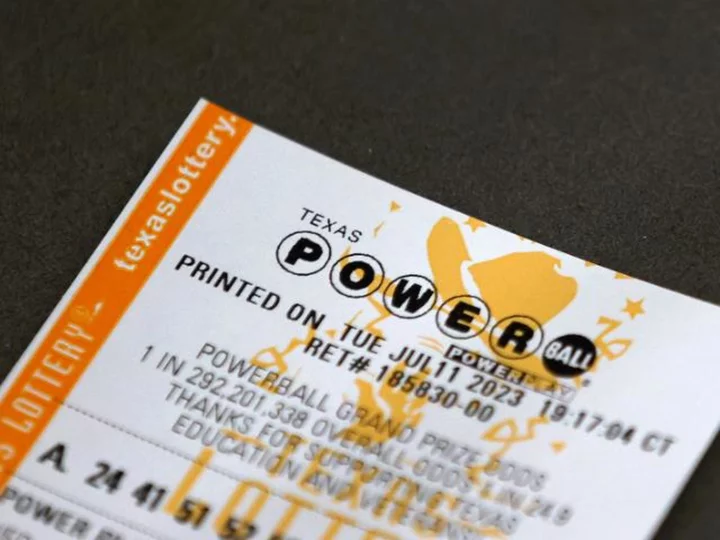
A $900 million jackpot is up for grabs in Monday night's Powerball drawing
Feeling lucky? A $900 million Powerball jackpot grand prize is up for grabs during Monday's drawing -- the third largest jackpot in the game's history, according to Powerball.
1970-01-01 08:00

MLB Rumors: New Yankees trade target will infuriate fans
The Yankees are reportedly targeting Rockies outfielder Randal Grichuk as an unspiring alternative to the natural fit of Cody Bellinger.It's not a very good time being a Yankees fan right now.Sure, the team has 50 wins, but they're tied for last place in the AL East after the first...
1970-01-01 08:00

Pennsylvania flash flooding kills 3, as Northeast braces for more rain and tornadoes
Flash flooding killed at least three people in Pennsylvania Saturday evening, and storms moving through the Northeast Sunday threaten heavy rain and tornadoes.
1970-01-01 08:00

Three Israeli civilians wounded, one seriously, in West Bank shooting
One Israeli man was seriously wounded and two young girls were hurt in a shooting in the West Bank, the Israel Defense Forces (IDF) and Israeli emergency services said Sunday.
1970-01-01 08:00
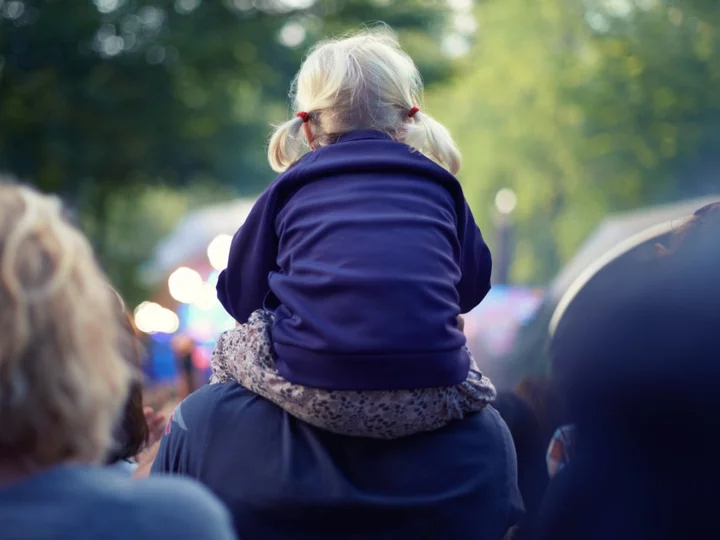
Nappy changes and tantrums over Michael Gove: I took my one-year-old to a music festival
It’s just after 9pm and lilac hues have spread across Dorset skies, shadows extending over a panorama of marquee tops. Perfect conditions for the first night of End of the Road, whose Friday headliners – Black Midi, Battles and Fleet Foxes among them – are minutes away from stepping on stage. Yet, rather than slipping through the masses to grab a good spot, I’ve been back at my tent for an hour already. Having unfolded a stool in the last of the sun, simmering lentils and a mug full of boxed cab-sav for company, my one-year-old daughter, Nancy, has finally nodded off in the tent, unaware of earlier negotiations between her parents. After an afternoon watching bands from a lower-decibel distance as a family, it’s my wife who’s out tonight, enjoying her child-free break for freedom. Although, with the Pixies – a band beloved since teen years but never seen live – top billing on Saturday night, I felt confident in my call as “White Winter Hymnal” carried on the breeze. We’re a day into our first festival as a family of three, an experience already proving quite a journey. As a sometimes music journalist, I’d covered events across Europe over the past decade, adept at negotiating stage splits, balancing reporting duties and life-affirming experiences with willing accomplices. Of these, End of the Road has remained a regular fixture, an informal end-of-summer meet-up with industry colleagues and friends – as well as my chosen stag-do destination. With a one-year-old in tow, this year would mark a stark contrast. From the freshly purchased family-sized tent – the subject of substantial research and investment, and an attempt to win over a camping-averse wife – to the travel cot, buggy, strings of fairy lighting, endless layers, toys and first-aid trappings for every eventuality, the baggage was endless. Shoulders ablaze, I’d carried it all in as my wife kept our daughter entertained. Stepping into my role as responsible dad, I’d practised the tent’s set-up at home prior to arrival and, with a tangible sense of optimism about the weekend ahead, started separating pegs from poles. Yet, with the tent almost up, something unsettled me. What was that smell? Unzipping the bedroom it hit me. My earlier garden practice run had provided the perfect sheltered toilet for a visiting fox –  evidence of which no amount of wet-wipe scrubbing could remove, resulting in a showdown with the reluctant camper and a smell that would accent a weekend in which expectations were continuously lowered. After my wife crashed back in on Friday night, earlier than anticipated and hamstrung by a fast-developing cold, we wondered if we were up to the challenge. Nancy was having a nice time, happy tracking insects in the long grass or studiously inspecting the contents of her snack bag. But could this equally have been any other field? Had we been too exhausted and distracted to embrace the experience? By contrast, our camping companions had brought their five-year-old, who enthusiastically shared stories about favourite bands and the wicker dragonfly he’d crafted, as his dad talked about the surprise sets he’d happened upon the previous night. Perhaps we’d just taken all of this on too soon. The next morning, I nudged Nancy’s buggy around the site, stopping at the kids’ area, where a neckerchiefed uke player offered up nursery rhymes with instruments for children, which were seized upon with pleasure. Various childless friends were never far away, entertaining our daughter in bursts. Later, after reuniting with my wife, a highlight was bobbing to Los Bitchos’ buoyant afternoon performance with Nancy held aloft, as was a brief glimpse of Jockstrap packing out a small stage in the woods. Yet other moments – flailing nappy changes amid aghast onlookers, straying too close to the stage with a buggy as the light faded and the crowd surged – presented a sharp learning curve. Still feeling under the weather, my wife headed back to the tent with Nancy as the Pixies arrived, Frank Black’s substantial presence now underscored by a pang of guilt. After checking in and being signed off to stay out, I’d joined an excitable crowd for an unannounced late-night set at the Tipi stage, which, after turning out to be one of the tiny handful of bands I’d already seen that day – again sounded another minor chord on my tiny violin. As the skies cleared, we’d discovered corners along the way we’d otherwise never have seen and met a similarly dazed yet determined community of parents With my wife’s health deteriorating further overnight – diminishing her perception of fox piss, at least – we made the call to leave on Sunday morning and I hauled everything back to the car. On the long drive home, and hours before Covid would be confirmed, it had to be asked: had this been fun for anyone concerned? Was this festival too aptly named for a new dad trying to reconcile past and present lives? This all happened in the summer of 2022 and, unfazed, we tried again this year – albeit at the even smaller scale and decidedly family-friendly Kite Festival in Oxfordshire. While Nancy’s advanced age presented new challenges – tentative first steps now a confident swagger – her inquisitiveness also marked her out as the perfect festival companion. Expectations now firmly in check, we let ourselves be led by circumstance and proximity, stopping for whatever drew the eye rather than dashing from act to act, allowing us to slow down and see the world through her eyes. Occasionally we tag-teamed the lineup, each picking a couple of acts to witness unhindered by short attention spans (my wife took former PM John Major’s packed-out talk in the big top, I took Suede). Under the hot sun, our meeting point at the shaded children’s area also helped keep Nancy from turning pink in the sun. Clapping furiously at the end of shadow chancellor Rachel Reeves’s morning debate, her grasp on Labour’s manifesto pledges seems better than most – although this mimicry of crowd behaviour proves an endearing feature at later events, too. An uncontrollable tantrum during Michael Gove’s appearance at a panel discussion saw us quickly extract ourselves from the tent, drawing smiles from an audience impressed by the effectiveness of her heckle. Further priceless memories included dancing together at Candi Staton’s sundown set, Nancy with a brioche in each hand – ear defenders askew – visibly finding her feet. The following day the skies suddenly broke, with an electrical storm closing all stages, sending Birkenstock-clad families sprinting for cover. The one attendee thrilled by it all was Nancy, who careered around cackling as security attempted to keep punters from the marquee’s lightning-conducting metal poles. As the skies cleared, we’d discovered corners along the way we’d otherwise never have seen and met a similarly dazed yet determined community of parents. We still hadn’t nailed the performative kids-at-festivals thing – there was no trolley adorned with decoration or whimsical outfits – but felt comfortable that we’d struck the right balance, fulfilled by a shared experience led by the spontaneity of a child’s impulses. It marked a shift from any naive attempt to carry on with our lives as normal. An alternative, of course, is to leave your family at home. A couple of weeks ago I joined 250,000 others at Glastonbury, my own spontaneity given breathing space once more. Thrilling, yes, but also a weekend that at times left me seeking my small festival companion among the other attendees. I was temporarily overcome watching a daughter on the shoulders of her father as he introduced her to a favourite band, excitedly explaining each musician’s role. “How old? I’ve got one a similar age,” was shared with various others. Yet it was also at Glastonbury, as the temperature nudged into the thirties, that I spotted another dad – fixed grin but dead behind the eyes – pushing three irritable kids in a trolley up a shadeless slope. I nod my solidarity, before skipping off to the bar – relieved, this time, that’s not me. Bumping into Joe Goddard from Hot Chip, whose bandmates collectively call their kids the Micro Chips, he says that of all the children he knows, it’s those who have always been dragged to festivals who have proved the most rounded. Something that resonates with me as the Glastonbury hangover subsides and – reunited with my family – I start looking forward to carving out new shared experiences in crowded fields once more. Read More The earthy magic and lawless energy of being a child at Glastonbury festival Too cool to love these acts 10 years ago? This year’s Glastonbury is for you Music festivals have saved me so many times Demi Lovato says she still struggles with vision, hearing impairment after overdose Marina Diamandis says she has been diagnosed with chronic fatigue syndrome Should I keep my windows closed or open during a heatwave?
1970-01-01 08:00

Fulham reject second bid from Saudi Arabia for Aleksandar Mitrovic
Fulham have rejected a fresh approach from Saudi Pro League side Al Hilal for star striker Aleksandar Mitrovic, sources have told 90min.
1970-01-01 08:00

Demi Lovato says she still struggles with vision and hearing impairment after 2018 overdose
Demi Lovato has opened up about the lasting health struggles she continues to face following her 2018 overdose. The “Sorry Not Sorry” singer recently appeared on SiriusXM’s Andy Cohen Live, where she revealed that her near-fatal overdose left her with vision and hearing impairment. “I wouldn’t change my path because I don’t have any regrets,” she told host Andy Cohen on Wednesday 12 July. “The closest thing that I get to a regret is when I overdosed and I wish somebody had told me, one, that I was beautiful, because I didn’t believe it,” Lovato shared. “And two, I wish that someone would’ve told me that if you just sit with the pain, it passes.” “That overdose caused me a lot of - it actually caused a disability. I have vision impairment and hearing impairment to this day,” the 30-year-old singer said, even admitting that she doesn’t drive anymore due to “blind spots in [her] vision”. However, the Disney Channel alum went on to explain how the lasting effects of her overdose are a “daily constant reminder” throughout her sobriety journey. “Anytime I look at something - like, I have blind spots in my vision when I look at your face,” Lovato told Cohen. “And so it’s a constant reminder to stay on the right path, because I never want that to happen again.” In July 2018, Demi Lovato was rushed to the hospital after suffering “complications” from a reported overdose. She had previously celebrated six years of being sober. In her YouTube documentary series, Dancing with the Devil, which was released in March 2021, Lovato revealed that she became addicted to meth, heroin, and crack cocaine in the weeks before her overdose. “I’m surprised I didn’t OD that night,” she shared in the docuseries. “I just went to town. I went on a shopping spree. That night I did drugs I’d never done before. I’d never done meth before, I tried meth. I mixed it with [ecstasy], with coke, weed, alcohol, oxycontin. And that alone should have killed me.” Two weeks later, she added, she was “introduced to heroin and crack cocaine”. Lovato suffered three strokes and a heart attack during her overdose, leaving her with permanent brain damage. Lovato has been very open about her sobriety journey and mental health struggles. When the “Skyscraper” singer was diagnosed with bipolar disorder in 2011, Lovato shared that the diagnosis provided her with a sense of “relief” because she had spent “so many years struggling” with her mental health. “I was so relieved that I had finally had a diagnosis,” Lovato said at the Hollywood & Mind Summit in Los Angeles last May. “I had spent so many years struggling, and I didn’t know why I was a certain way in dealing with depression at such extreme lows, when I seemingly had the world in front of me just ripe with opportunities.” Lovato is now fully sober after initially adopting a “California sober” approach that involved marijuana and alcohol in moderation. “I no longer support my ‘California sober’ ways,” the singer said in an Instagram Story in December 2021. “Sober sober is the only way to be.” Read More Demi Lovato changed pronouns because explaining They/Them to people was ‘absolutely exhausting’ Demi Lovato explains why she was ‘relieved’ to be diagnosed with bipolar disorder Demi Lovato reveals she used opiates for first time at 13 Marina Diamandis says she has been diagnosed with chronic fatigue syndrome Should I keep my windows closed or open during a heatwave? How to sleep during hot weather, according to experts
1970-01-01 08:00
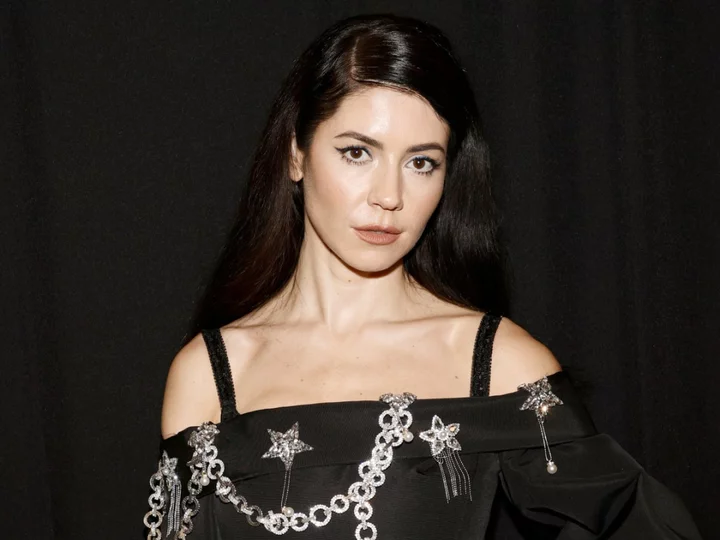
Marina Diamandis says she has been diagnosed with chronic fatigue syndrome
Marina Diamandis, known under her stage name Marina and the Diamonds, has revealed that she was recently diagnosed with chronic fatigue syndrome. The condition, also known as myalgic encephalomyelitis (ME), resulted in symptoms such as “deep fatigue, numbness, tingling, low appetite, brain fog, rashes, insomnia and a feeling of being ‘poisoned’ for so long”, the 37-year-old Welsh singer wrote in an Instagram update. Diamandis shared that she was only diagnosed with ME after “seven years of health issues”, adding that “it’s been hard to remember what healthy feels like”. “My baseline energy has been at 50 to 60 per cent for a long time,” she continued in her post. “Aside from a few periods of remission, the last seven years have consisted of relying on adrenaline and willpower to push me through each day. “Recovery started two months ago after an unusually bad flare-up that involved shooting pains and burning sensations all over my hands, legs and back,” Diamandis revealed. “After seeing countless doctors, I started working with a functional medicine practitioner to find the root cause of the symptoms.” Functional medicine is a form of alternative medicine that focuses on identifying and treating the root cause of a disease. It falls outside of mainstream healthcare and is not offered by the NHS – although the NHS has recommended the use of some alternative medicines like acupressure and manual therapy for a limited number of circumstances. In her post, Diamandis claimed that her symptoms “are a result of a hypersensitive nervous system” that developed in response to “chronic stress”. “My body has felt stuck in ‘fight or flight’ mode and there were many warning signs it gave me before the worst symptoms set in,” she wrote. Amid her treatment, which she claimed helps to “retrain the nervous system to regulate itself again”, the “Primadonna” singer added that she is “feeling better today than I have in a long time”. “My energy levels are around 65 to 70 per cent most days and the dips I have are shorter,” she said. “Healing is demanding a lot of my energy and attention right now, but the better I feel, the sooner I can get back to my creative life again. I worked yesterday for the first time in a while yesterday and it felt so good.” Diamandis also said that living with ME has given her a “deeper empathy for the millions of people who live silently with chronic illness”. “It’s hard to maintain optimism when the world feels like it’s moving on without you, but hope always exists. Answers always exist,” she said. “The body wants to heal – and what I’ve learned is that you have to work with it, not against it.” ME is a long-term condition with a wide range of symptoms, but the most common one is extreme tiredness. It can affect anyone, including children, but tends to develop between a person’s mid-twenties and mid-forties. An estimated 250,000 people in the UK suffer from ME, with around 17 million sufferers around the world. It is more common in women. According to the NHS, there is no cure for ME. Treatments that may help sufferers manage the condition include cognitive behavioural therapy, energy management and medicine to control symptoms such as pain and sleeping problems. Diamandis released her most recent studio album Ancient Dreams in a Modern Land in June 2021. She embarked on a world tour last year to promote the record. Read More I keep forgetting my dog’s birthday – could a luxury pet party make it up to him? From Princess Beatrice to Louis Theroux: Who is in the Royal Box on the 12th day of Wimbledon? Woman requires eye surgery after using social media hack to remove makeup Should I keep my windows closed or open during a heatwave? How to sleep during hot weather, according to experts Father reveals moment he realised he wanted to leave US and raise children in Spain
1970-01-01 08:00
